A September 9th story published by National Public Radio (NPR) asked the question: Can the most popular red wine in the U.S. endure climate change? The answer is yes, despite the story falsely suggesting the opposite. Data suggests that Napa valley grapes have survived hotter temperatures in the past, and despite over 30 years of modest global warming, grape production has actually increased in the area.
Here are some excerpts of the article:
But increasingly severe heat waves are taking a toll on the grape variety, especially in late summer during ripening. As temperatures keep rising, the wine industry is slowly confronting a future where Napa may not be the prime cabernet region it once was.
…
The vineyard is already at the hotter northern end of Napa Valley, but the extreme heat in recent years has been a wake-up call. A late-summer heat wave in 2022 hit temperatures just under 120 degrees at the vineyard, she says.
“When it gets that hot, the vines, they’re done,” she says. “They’re going to go dormant, and when that happens, they’re not ripening anymore.”
First, the author Lauren Sommer is conflating a short-term heat wave with long term climate change. Secondly, according to temperature records, while Napa valley set a new high temperature record of 114°F on September 6th 2022, it was only a degree hotter than the previous high temperature record of 113°F, set 61 years of global warming ago, in 1961.
A one-degree difference on one day spanning 61 years is not indicative of climate change, but simply natural weather variation. Weather does not operate in the same time span as climate. Figure 1 below, plotted by the National Oceanic and Atmospheric administration (NOAA), displays monthly average high temperature for September. It is clear that that NAPA county has experienced a number of hot Septembers throughout its history. Some were even higher than September 2022 when the entire month is averaged:
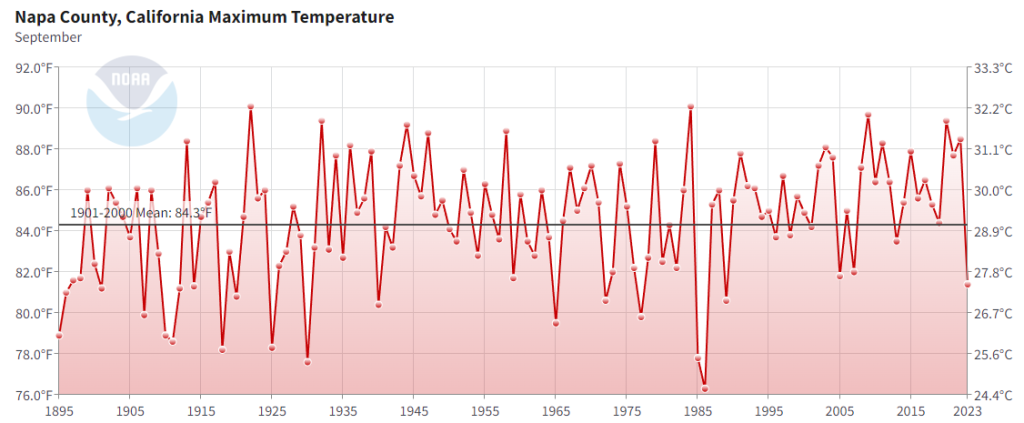
Note that many past Septembers had monthly average temperatures greater than or equal to September 2022.
In the table that NOAA provides with the graph plot, they indicate that September 2022 was not unusual at all, ranking 121 out of 129 years for maximum temperature, indicating that eight previous Septembers were hotter:
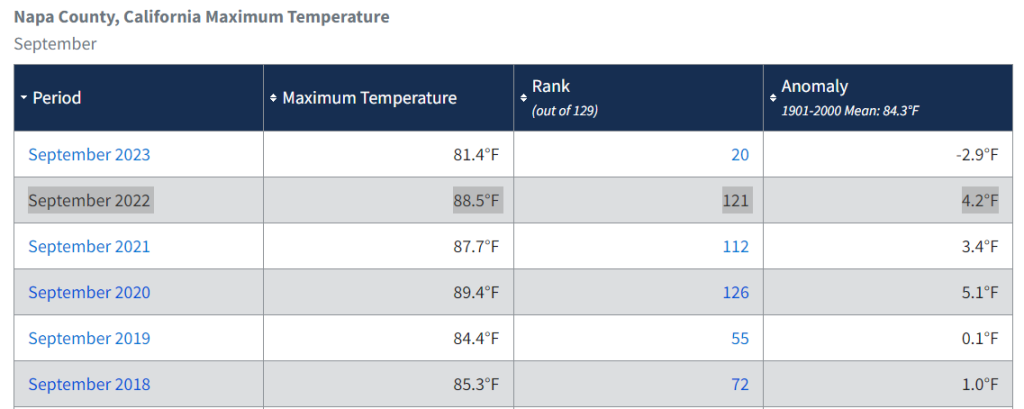
Also, production numbers for red grapes indicate that their output has not been harmed by recent temperatures. Figure 3, below, tracking grape production in California, with Napa in green, shows a steady increase in in tonnage harvested, not just in the Napa region, but for all regions:
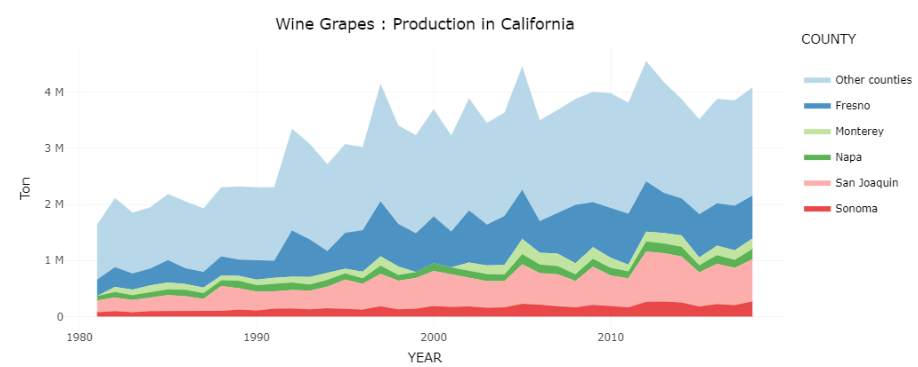
If long-term climate change was in fact detrimental to wine grape production, surely it would show up data informing figure 3, but it doesn’t. Climate change doesn’t come in the form of a single day’s hot temperatures, such as what NPR is conflating, it comes in the form of sustained increases over time.
The data suggests NPR’s Lauren Sommer may have been drinking too much wine when she wrote that story or, more likely, she failed to look into the actual temperature and grape production data before commencing to write a story in the “climate change causes everything bad” narrative; choosing her anecdotes to fit the narrative..
We can add this poorly researched story to the dozens of similar stories that Climate Realism has taken the media to task over faulty or selective reporting. Obviously, wine grapes can and have endured climate change, and the media is just dealing in scary stories without merit. NPR’s reporting on grapes seems more an expression of “sour grapes” at so many alarming climate scare stories having been debunked, rather than factual reporting on any dangers facing grape and wine production.







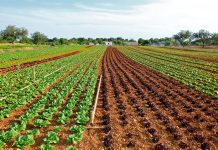




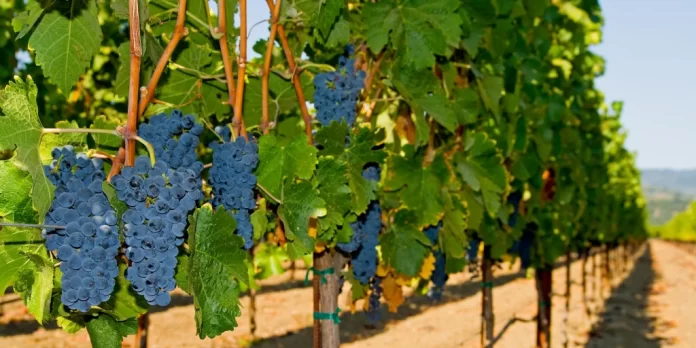




The winery Vin de Tahiti on the tropical island of Rangiroa is an immediate disproof of this silly stuff,
It’s owned by French vigneron Dominique Auroy and has been making wine since 1991.